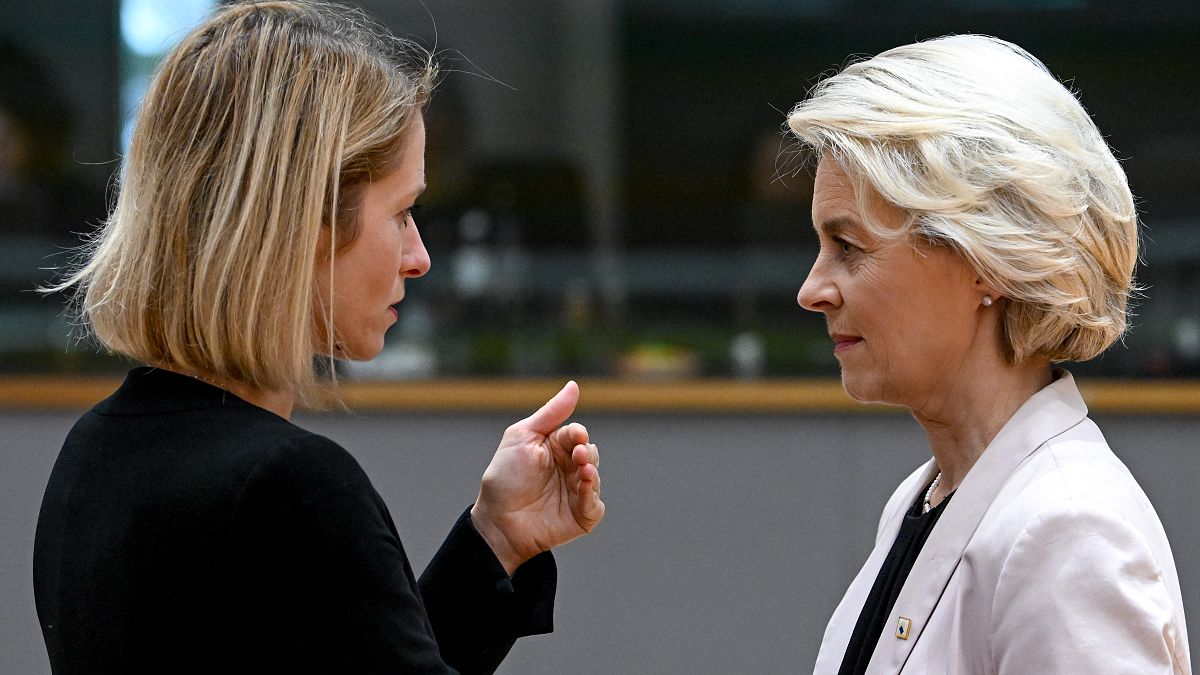EU summit: strategic agenda, top jobs and Zelenskyy

EU leaders gather in Brussels on Thursday and Friday (27-28 June) for a summit to name top officials and sign a security agreement with Ukrainian leader Volodymyr Zelenskyy.
European citizens went to the polls on 6-9 June to decide on the composition of the European Parliament. Now it’s the turn of their leaders to decide who will head the major Brussels institutions for the next five years, and what policies they’ll follow.
On the agenda of this week’s EU summit is military support for Ukraine, the vision for the next five-year mandate, the Middle East, migration, defence and security – and the EU’s own top jobs.
After taking the post-election temperature at an informal gathering last week, Europe’s 27 leaders are now expected to agree on a pre-cooked package of names to lead the European Commission, the European Council and the bloc’s foreign policy.
The likely candidates are Germany’s Ursula von der Leyen for the EU executive, Portugal’s António Costa as president of the European Council and Kaja Kallas as foreign affairs chief.
After trying and failing last week, six negotiators – Poland’s Donald Tusk, Greece’s Kyriakos Mitsotakis, Germany’s Olaf Scholz, Spain’s Pedro Sánchez, France’s Emmanuel Macron and the Netherlands’ Mark Rutte – held a phone call earlier this week to reaffirm their slate of candidates.
Will EU leaders endorse the decision of the six? How will Italy and Hungary react to being cut out of the loop? And will the EU succeed in unblocking military aid to Ukraine? Follow our live blog to ensure you don’t miss a trick.
Related
ForexLive European FX news wrap: Euro stays buoyed, markets wait…
Headlines:Markets:EUR leads, AUD lags on the dayEuropean equities lower; S&P 500 futures up 0.1%US 10-year yields down 2.7 bps to 4.255%Gold up 0.4% to $2,9
European shares fall as tariff uncertainties weigh; US jobs data…
(Reuters) - European shares fell on Friday as frequent shifts in U.S. trade policy throughout the week resulted in risk aversion, while focus remained on th
US economy added 151,000 new jobs in February; Euro on…
US jobs report releasedNEWSFLASH: Hiring across the US economy picked up slightly at the start of Donald Trump’s second term in office.The US economy added 15












